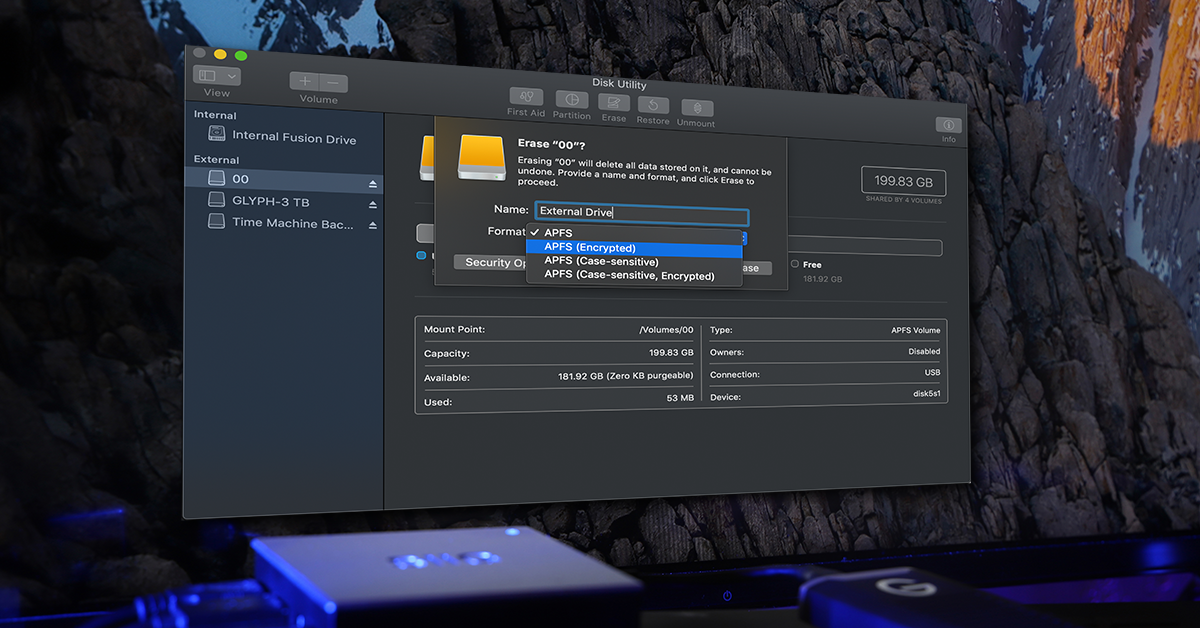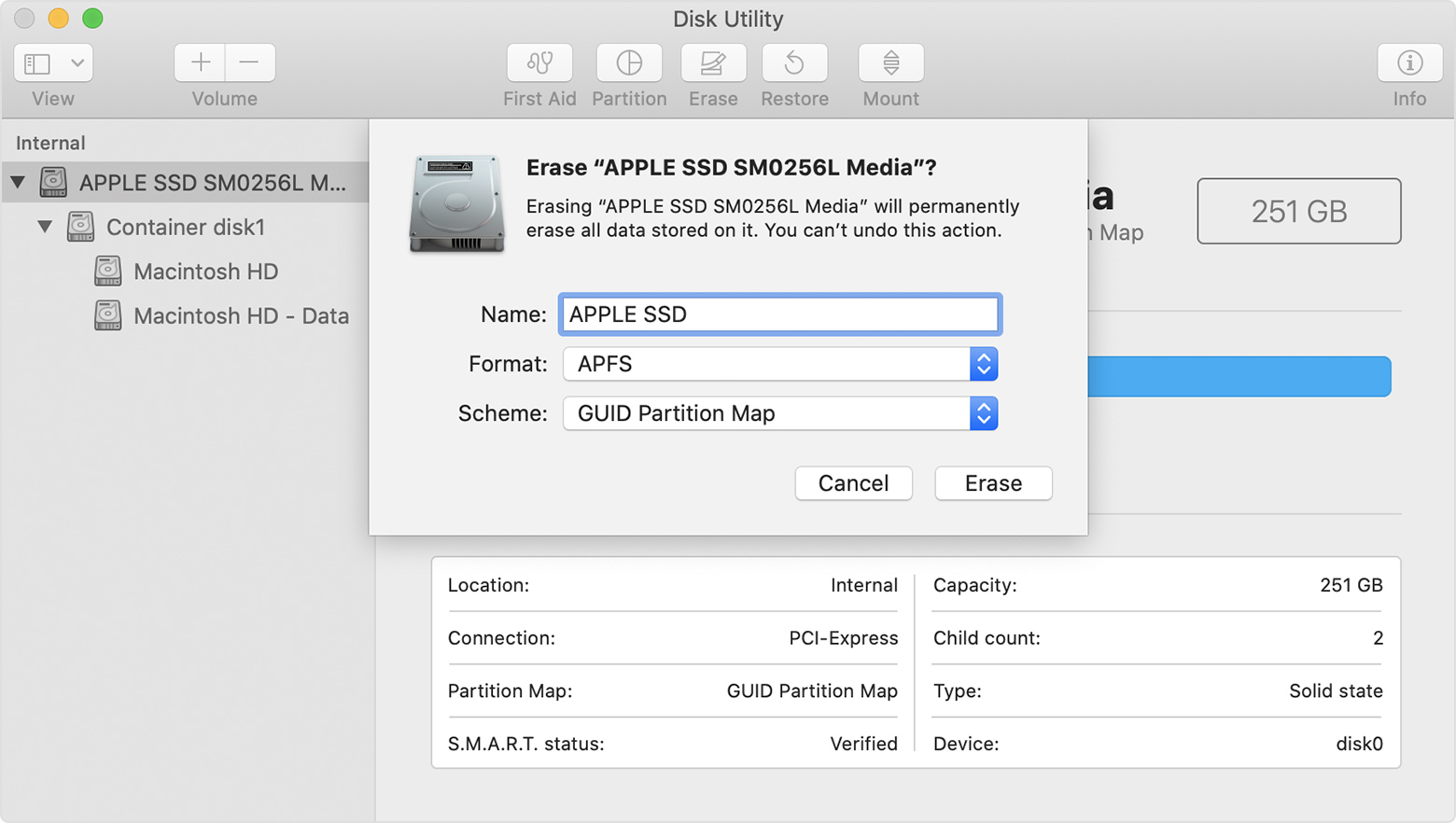

- Mac internal hard drive files mac os x#
- Mac internal hard drive files install#
- Mac internal hard drive files full#
- Mac internal hard drive files software#
- Mac internal hard drive files mac#
Mac internal hard drive files full#
If you don’t need the full fidelity of lossless playback, then Lame MP3 or AAC will save a lot of space. The options include FLAC (Free Lossless Audio Codec) and compressed “lossy” formats such as MP3 or AAC. The answer depends on whether you want to convert your ALAC (Apple Lossless Audio Codec) music files to another format that’s more popular on Windows, and if so, which.

The problem with ALAC is that it’s not widely supported outside the Apple world, where FLAC is the de facto lossless standard.
Mac internal hard drive files mac#
I have some Apple Lossless files on my Mac and also want to play them on my Windows PC. Some of the Amazon reviews complain that the transfer speed of the 128GB version is very slow, but trying to do it via a cloud storage system would be even slower.Ī less obvious solution is to use a standard ethernet cable to connect the two machines together, as shown in this YouTube video. However, SanDisk sells thumb drives with capacities up to 128GB, so it’s just a case of deciding how big a drive you need. This can get tedious, depending on how much data you need to move. The most obvious solution is to use a USB Flash drive. I don’t know which would be simpler, but if the first one doesn’t work, you can try the second.įinally, although an external hard drive is a good way to move files from a Mac to a PC, there are other ways to do it.
Mac internal hard drive files install#
So, you could use your Mac to copy the files to your dad’s 4TB FAT32/exFAT drive, or your dad could install a free HFS+ driver and use his PC to read them from your Mac drive. (It’s a Windows program that reads Linux and Mac disks.) Both are free.
Mac internal hard drive files software#
Windows PCs won’t normally read that without an additional software driver, such as Erik Larsson’s HFSExplorer or the DiskInternals Linux Reader.

Meanwhile, your external hard drive is probably formatted in a version of Apple’s Hierarchical File System (HFS). If your Mac still refuses to recognise it, you can tell it to initialise the drive as an MS-DOS disk (ie FAT32). You should then be able to copy files to it with your Mac. However, if both of you want to read and write to this particular EHD, I suggest reformatting it in exFAT while it’s still empty. If he right-clicks on the 4TB drive and selects Properties from the drop-down menu, the Properties sheet will have an entry for “File System” that will usually be NTFS or FAT32. All the PC’s drives will be shown in the right-hand pane. Your dad can check the format of his 4TB EHD by running Windows Explorer and selecting Computer in the left-hand pane.
Mac internal hard drive files mac os x#
Apple added read-only support for NTFS in 2003 with Mac OS X 10.3 (Panther) and many Mac users need it for running Windows under Boot Camp. Mac to PC file transfer using an ethernet cableĮven if the 4TB drive has been formatted in Windows’ NTFS (New Technology File System) format, then your Mac should still be able to read it, though it won’t be able to write to it.

Apple already supported FAT32 and it added support for exFAT in Mac OS X 10.6.5 (Snow Leopard) and later versions of OS X. All updated versions of Windows XP and later versions of Windows support both FAT32 and exFAT. If your dad’s new 4TB EHD (external hard drive) has been formatted in FAT32 or exFAT, then both his PC and your Mac should be able to read it. Hard drives will have to double in size another seven times to reach that. In theory, this can handle drives up to 64 zettabytes, though 512TB is the recommended maximum. However, hard drives keep getting bigger - now they are typically 500GB to 4TB - and in 2006, Microsoft released a new extended version, exFAT. In 1996, Microsoft introduced FAT32 to handle much larger hard drives, and FAT32 is still in common use. When DOS was born, popular hard drives only had 5MB or 10MB of storage space, which you could fill today with a single animated GIF. Most operating systems can read files in these old formats. They tend to use a version of Microsoft’s FAT file format, which dates back to the MS DOS (or IBM PC DOS) operating system used by the IBM PC in 1981. Macs and Windows machines do have their own preferred file formats for internal hard drives, but external hard drives don’t always ship with these pre-installed. The hard drives should not be a problem, unless your computers are very old.


 0 kommentar(er)
0 kommentar(er)
